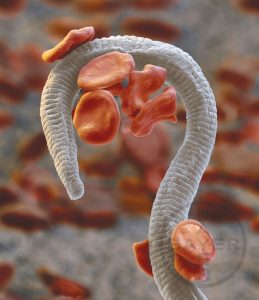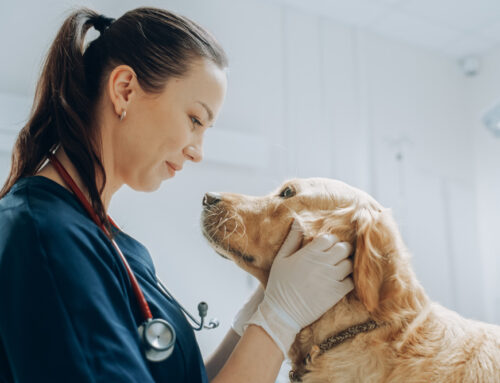Heartworm disease is a serious and potentially fatal disease in both dogs and cats. The disease caused by Dirofilaria immitis (D. immitis) continues to cause severe disease and even death in dogs and other animals, even though safe, highly effective and convenient preventatives have been available for the past 20 years.
Furthermore, the parasite and vector mosquitoes which carry D. immitis continue to spread into areas where they have not been reported previously. In Reno, Nevada, where my hospital is located, we are now considered to be in a “Red Zone” according to the American Heartworm Society. As the vector size increases so do the risks for human populations as well making Heartworm treatment a Public Health Issue.

Organizations like the American Heartworm Society promote awareness, encourage research and provide updated guidelines for the diagnosis, treatment and prevention of heartworm disease. But I concur with the CDC in that pet owners need to be educated by their Veterinarians as well.
We conduct extensive patient awareness training’s dealing with Heartworms and the potential transmission of human parasites such as Roundworms into the family environment on a year-round basis.
As stated above, Heartworm disease affects dogs and cats, but it can also affect ferrets, and other mammal species, including wolves, coyotes, foxes, sea lions and—in rare instances—humans. Because wild species such as foxes and coyotes live in proximity to many urban areas, they are considered important carriers of the disease. Mountain View Animal Hospital is located in such an area.
Dogs are the natural host for heartworms, which means that heartworms that live inside the dog mature into adults, mate and produce offspring. If untreated, their numbers can increase, and dogs have been known to harbor several hundred worms in their bodies. Heartworm disease causes lasting damage to the heart, lungs and arteries, and can affect the dog’s health and quality of life long after the parasites are gone. For this reason, prevention is by far the best option, and treatment—when needed—should be administered as early in the course of the disease as possible.
Prophylaxis is by far the best option for preventing Heartworm disease in dogs and cats. In terms of cost alone, prophylaxis costs are approximately that of a single large latte at Starbucks each month versus $1,000 to $3,000 for treatment.
Dr. Sarah Kalivoda
Mountain View Animal Hospital & Holistic Pet Care
Reno, Nevada
775-853-6900










Leave A Comment